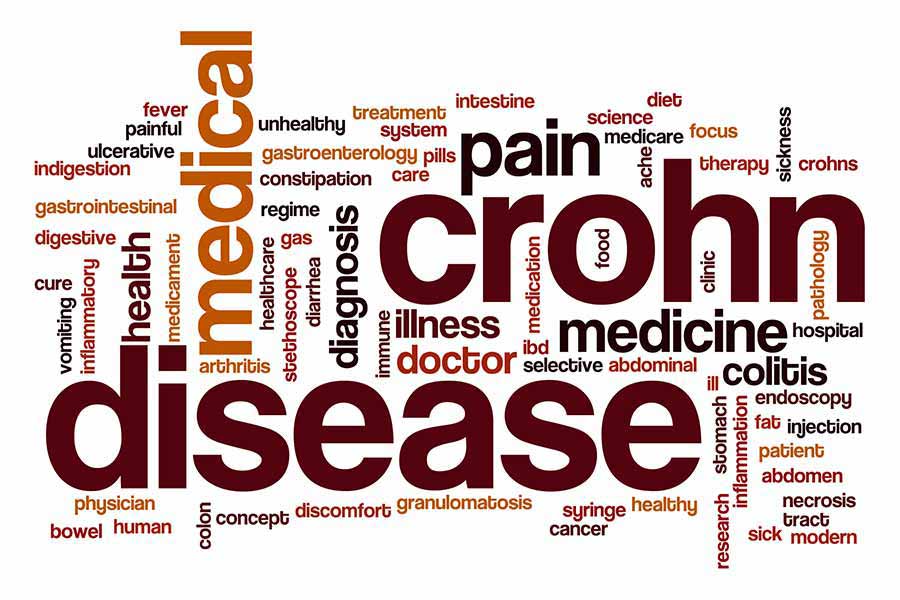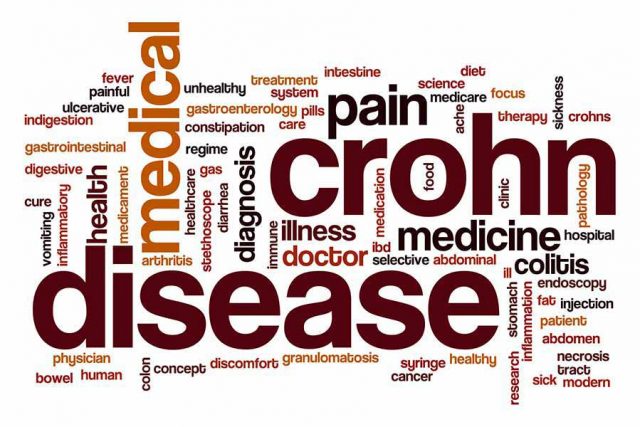
Iron deficiency anemia is one complication of Crohn’s that may leave you wondering what’s going on. After all, Crohn’s is known as a disease that targets your digestive system, so why are you experiencing trouble with your blood and oxygen levels? A simple answer to this complex situation is that anemia sometimes develops when there’s excessive bleeding in the digestive tract. The loss of healthy red blood cells means that you also lose the iron and oxygen carried by those blood cells. When you find yourself feeling tired, run-down, or short of breath, these symptoms are the result of the disease as much as your abdominal pain. Of course, identifying the specific causes for your individual iron deficiency symptoms requires a closer look with the help of your doctor.
What Causes Anemia?
Although anemia, or iron deficiency, is a common complication of Crohn’s, it is sometimes overlooked because fatigue is a direct result of the disease. The digestive disease is often marked by inflammation, painful ulcers throughout the body, and the swelling of the lining inside the digestive tract. Without appropriate treatment and sometimes in spite of professional treatment, you may suffer internal bleeding. Unless you’re also experiencing pain, this bleeding can be particularly dangerous because it may go unnoticed, go on for extended periods of time, and cause a significant deficiency in iron. If caught quickly, your doctor may prescribe oral iron supplements.
Another cause of anemia in Crohn’s patients is poor nutrient absorption. When this happens, doctors often prescribe iron infusions. One of the big problems for people dealing with anemia as well as their other symptoms is the fact that increasing their iron levels often exacerbates their Crohn’s symptoms. It’s essential that you work closely with your trusted medical advisor to determine the best course of treatment for your unique situation.
What Should You Do If You Suspect Anemia?
If you are more fatigued than you expect or if you are short of breath, make an appointment with your healthcare professional. Other warning symptoms may include
- Chest pain
- Cold hands or feet
- Cravings for unusual substances (chalk, dirt, ice)
- Dizziness
- Headaches
- Lightheadedness
- Pale skin
- Weakness
Your doctor will take a comprehensive medical history, complete a physical exam, and order tests, including a complete blood count. This last will test for the presence of ferritin and measure your hemoglobin level and hematocrit level among other things. With a clear diagnosis, you’re ready to begin treatment.
What to Expect From Treatment for Crohn’s Related Anemia
When anemia is the result of Crohn’s, your treatment of it generally focuses on the underlying inflammation as well as the iron deficiency. Without addressing the swelling, it’s difficult to adequately supplement iron levels. Because of this, keeping your IBD under control is one of the primary factors of your treatment plan. Of course, maintaining good nutrition is a big part of this control. Carefully avoid the foods that worsen your symptoms. As always, the best Crohn’s diet for you depends on your unique symptoms and nutritional needs. Work closely with your medical care team to identify the best diet for managing your symptoms.
In the past, there wasn’t much done to increase iron levels until the Crohn’s symptoms were under control. However, this often meant that the anemia wasn’t managed adequately for a long time. Today, doctors are more likely to address low iron levels immediately while monitoring inflammation. In some cases, the assistance of a hematologist (or blood disorder specialist) may be required. Bringing your iron levels up without worsening your other symptoms may require some careful balancing so don’t rush into any new diets without the supervision of your healthcare provider.
Avoid Constipation and Bowel Obstructions
Avoid bowel obstructions by following your prescribed diet to decrease the possibility of internal bleeding. Severe swelling may thicken the walls of your intestine to the point that the tract narrows or completely closes. Repeated bouts of swelling often lead to scar tissue that blocks the narrow passage. Taking too much iron could lead to constipation and worsen any existing obstructions.
Schedule Further Testing
Depending on the severity of the complications, your healthcare provider may take a closer look at your Crohn’s. This may lead to further testing, including magnetic resonance imaging, a colonoscopy, and a fecal occult blood test. These tests may be run multiple times to get a more detailed picture of the extent of your Crohn’s.
Increase Iron Levels With Prescriptions
Supplements may be used to increase iron levels. If your iron levels are dangerously low, your doctor may prescribe iron supplements or set up intravenous iron infusions. There are risks associated with either option, so don’t make this move without the supervision of your healthcare provider. Vitamin B12 injections could provide relief from lost energy and immunity.
Adopt an Iron-Rich Diet
You can improve your intake of iron, as well as vitamin C and folic acid, by eating citrus, grapes, dried fruits, beans, enriched grains, and dark green leafy vegetables. (Vitamin C helps your body absorb iron effectively.) A few servings of red meat during the meat should provide ample iron, but it’s important to stick to your recommended diet. Discuss these options with your doctor. If you are following a carbohydrate-free or low-fiber diet, these options may not be appropriate.
Talk to Your Doctor Today
If you suspect that anemia is a complication of your Crohn’s, contact your doctor today. Carefully follow the nutritional schedule and plan you have in place for controlling your symptoms. Every case of Crohn’s is unique, so your treatment plan should be tailored to your own situation.
Did you find this article helpful? Join us at HealingWell for support and information about Crohn’s Disease. Connect and share with others like you.




